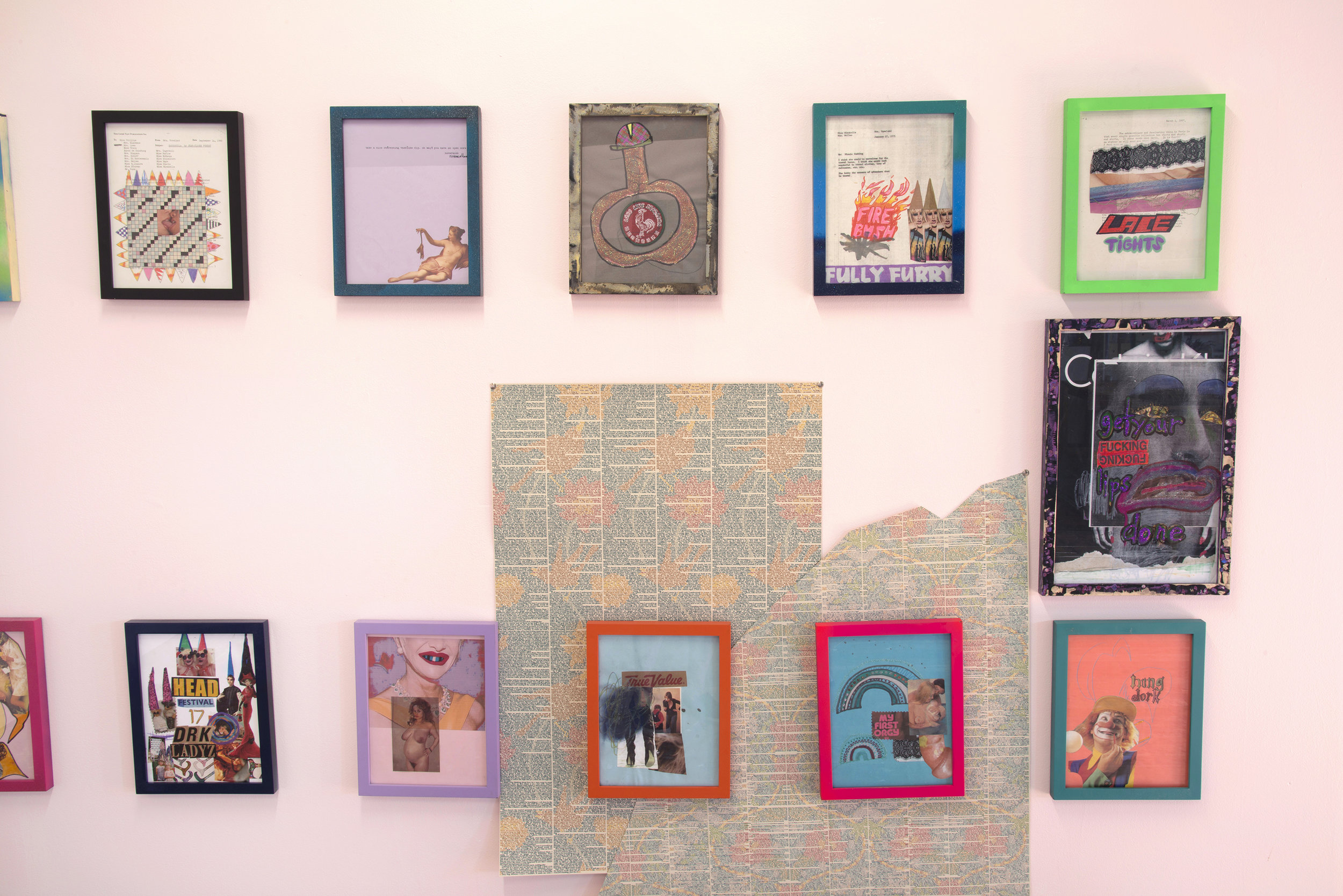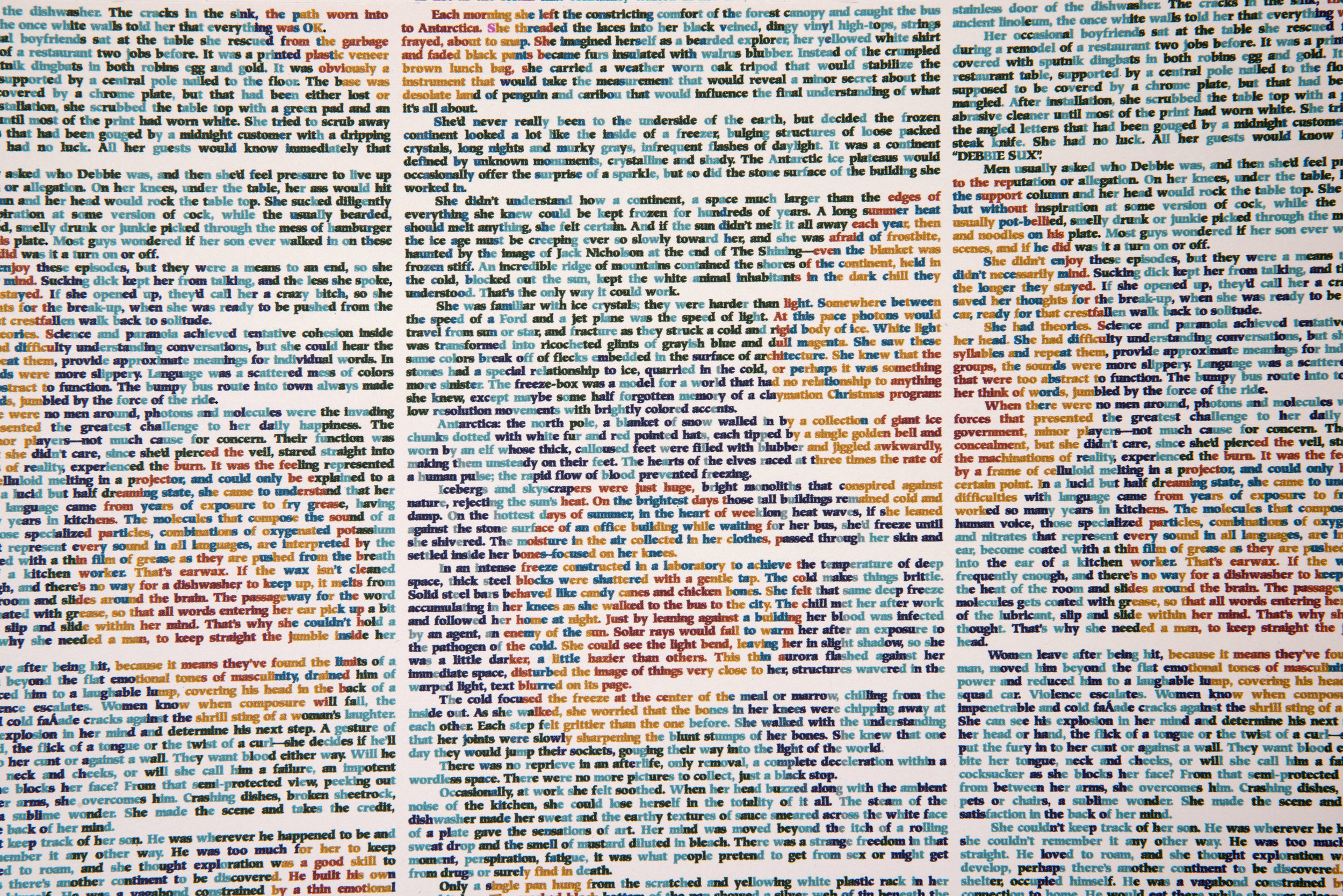I have co-organized an exhibition at Private Places in Portland, Oregon with my friend, the artist Bobbi Woods. The exhibition includes work by M. Page Greene, Heidi Schwegler, Dennis Cooper, sweaterqueens and myself. The following is the statement for the exhibition and documentation. Dnnis Cooper's GIF novel is an interactive piece and doesn't come across well in the photographs, but you can experience it on your own screen here. The text-based wallpapers are my work that were collected into a volume titled Pattern Book that can be purchased here.
Teeth and Consequence
Dennis Cooper, M. Page Greene, Christopher Russell, Heidi Schwegler, sweaterqueens,
Organized by Christopher Russell and Bobbi Woods
July 15 - September 13
2400 NE Holladay Street Portland OR 97232
I give the name violence to a boldness lying idle and hankering for danger. It can be seen in a look, a walk, a smile, and it’s in you that it stirs. It unnerves you. This violence is a calm that disturbs you. — Jean Genet
La violence is a raw expression of humanity, directed by psychological cues that one scarcely understands, an emotion fraught with teeth and consequence. Genet’s relationships were complicated, encompassing and destructive, yet within this minefield he possessed a profound self-awareness. La violence is the flawed humanity of the person, the sum total of compassion and arrogance, generosity and brutality, the capacity to elevate as well as devastate. This mess of emotion has everything to do with how and whom we accept into our lives. La violence stands against the childish simplicity of political platitudes that has come to populate suburban lawn signs and gallery walls. La violence is grounded in a reality of weakness, failing and personal profundity; it stands distinct from the kitsch notion of love.
Genet’s intensity is especially difficult to understand against social media’s encompassing world of empty symbolism. Language develops at such a rate that words enter wide usage only to disappear in a few years, if not months. This speed has defined the rate at which culture moves and evolves. Centuries-long struggles enter political discussion only to have their participants made into caricatures—piteous by the left and ridiculous by the right; not venerated for their humanity, but reduced to a slogan, a cause trimmed to fit an empty phrase, a cliche adorned in the patina of political resistance. That emptiness makes struggle and marginalization co-optable, absorbed into the disposable cycles of fashion. It’s no accident that within a year of Donald Trump’s election, after “love wins” became a national rallying cry, that Gucci began selling “Love is Blind” merchandise. Raf Simons and Fendi also introduced garish declarations of “Love” while Commes Des Garçons produced a line of heart emblazoned clothing. The movement for so-called safe spaces echoes this appropriation of agency, positing marginalized people as incapable of navigating a world that has, ironically, left them with much thicker skin than their self-appointed champions.
This exhibition considers Genet, Sartre’s patron saint of existentialism, as a partial antidote to a polarized, yet increasingly hollow political awareness. When you make a decision, you make it for the entire world. This was Sartre’s idea for a secularized ethic: embrace the golden rule while discarding the vast network of loopholes embedded within the gilded bureaucracy of religion. It proposed a path away from Postwar European depression, and might work to dissuade us of a peculiar fetishism that offers political pleasure by infantilizing the marginalized other while ignoring one’s own violence.



















